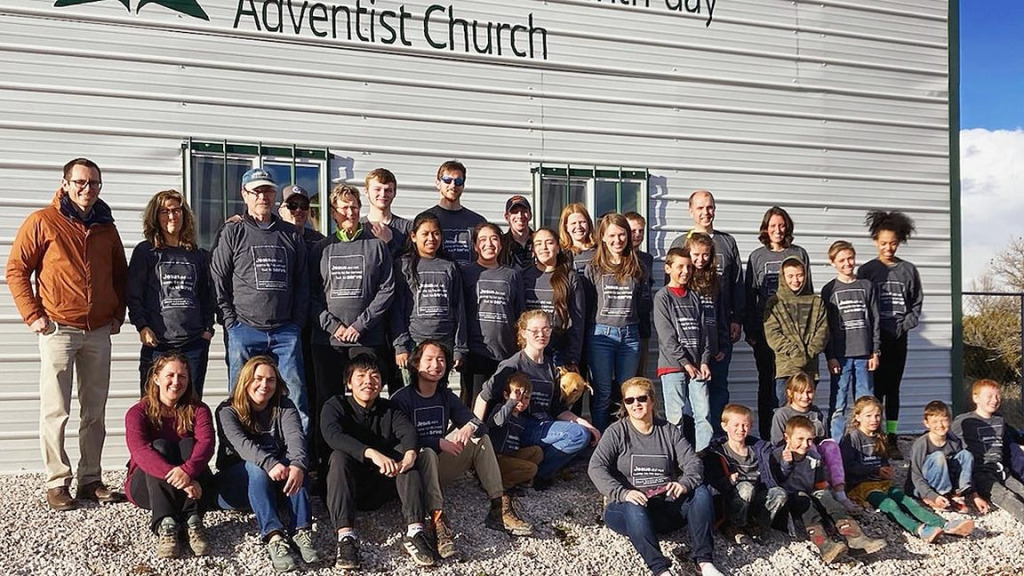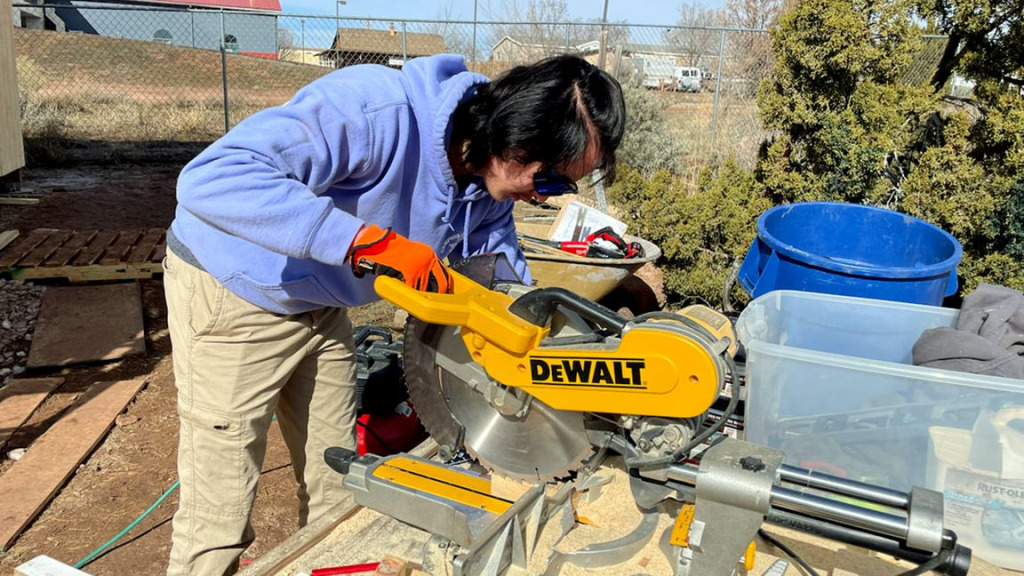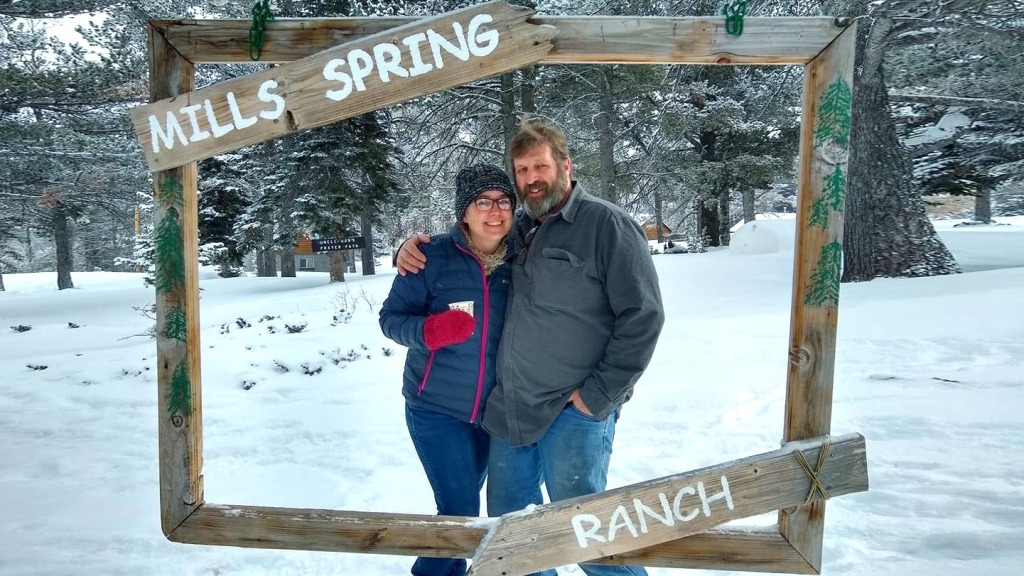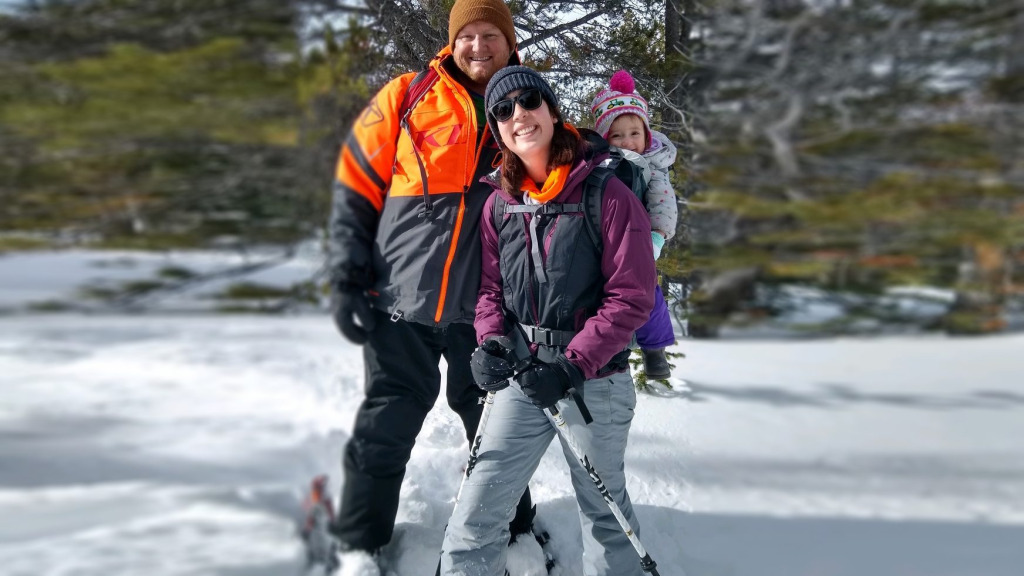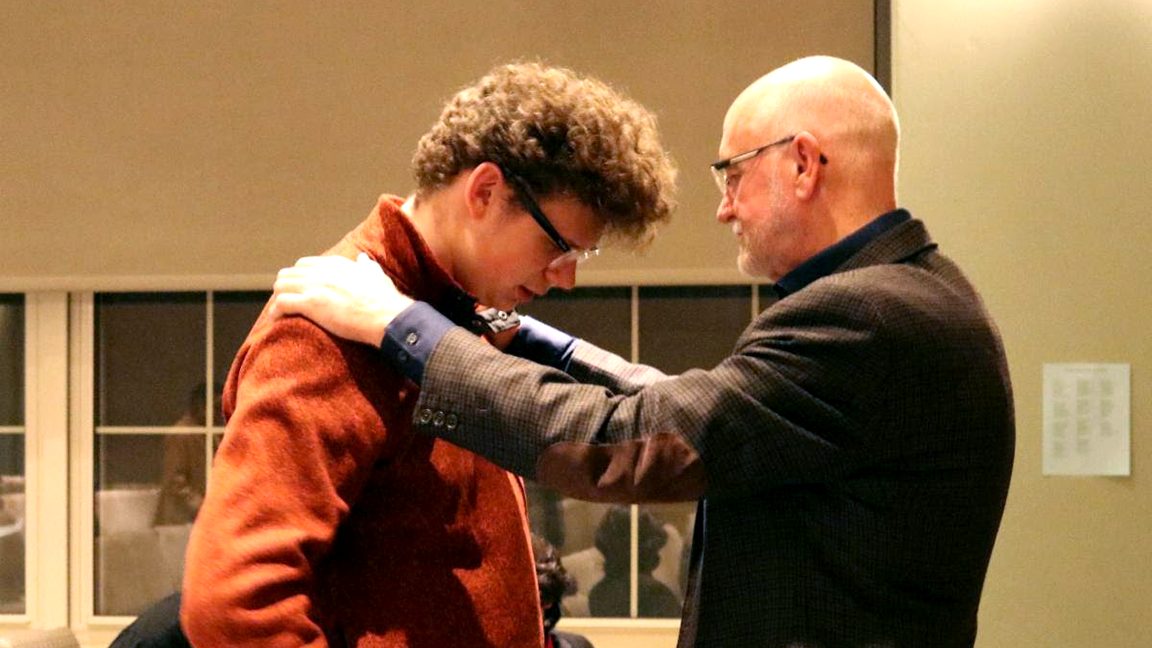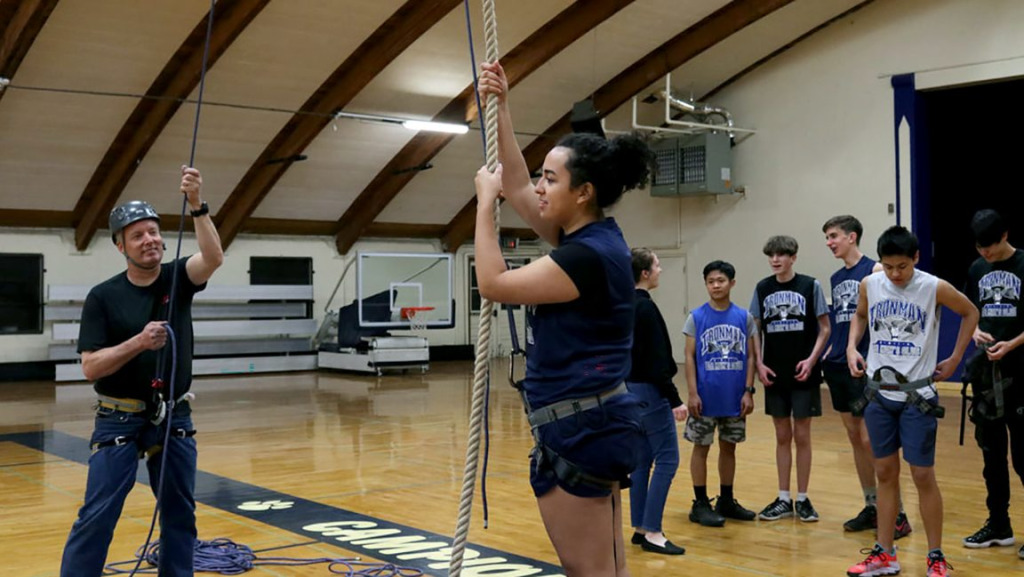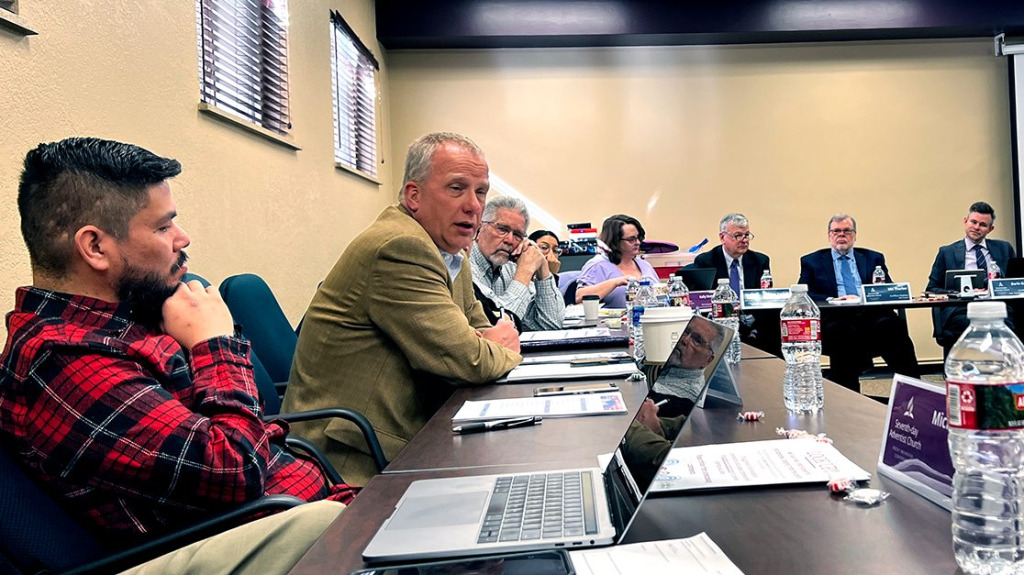Jill Harlow – Loveland, Colorado … Seven Campion Academy students chose to spend Spring Break serving in the Navajo Nation of Arizona. Led by Pastor Leandro Bizama, Associate Pastor of Worship and Evangelism at Campion Adventist Church, the group included about 30 church members who worked on the construction of a small home, hosted a Vacation Bible School for children, and provided health talks for the communities of Window Rock and Kinlichee.
“The mission trip was fun; I really enjoyed it,” commented senior student, Jarrod Lang; “I did construction, and we raised a house from the ground up. The day I left there, I felt so proud that I was able to participate in something that will bring God’s word to the people of that land.”
The construction crew was tasked with building a tiny home for Bible workers, student missionaries, or pastoral families in the near future. The three Campion students working on this project learned many skills from experienced builders using wood and power tools. The building’s framing and exterior, including the roof, was able to be completed within the week.
The other students focused on the Children’s Ministry by preparing and hosting a Vacation Bible School (VBS) which was attended by about 20 local children each day. The students assisted in every aspect of the program from leading music to acting in the various skits.
Marcela Zuniga shared, “For VBS, I was a doctor that played two roles, explaining guidelines on temperance and trust. I enjoyed getting to know all the kids and learning lessons that helped my relationship with God grow. I learned that I enjoy helping and seeing others smile and learn about God. The theme was to protect your castle (body/heart/mind), and it taught me that I want Jesus to sit on the throne in my castle.”
Mary and Steve Phillips, who are good friends with the local pastor’s family, were instrumental in bringing the group together. They led a health ministry for local adults, which included a Health Fair and nightly meetings. The meetings had eight consistent attendees and Mary shared, “We had very deep conversations which was wonderful!”
Bizama concluded, “I was blessed and proud to see both HMS Richards and Campion students, young adults, and church family members collaborating by spending their Spring break working and serving the Navajo Nation. It was challenging and tiring, especially because we were doing three simultaneous projects while staying in two different areas, but the result of the service was beautiful to see.”
“May we always choose a lifestyle of service and mission, no matter the cost; just like our theme verse for the trip says: ‘For the Son of Man did not come to be served but to serve,’ ” he added.
—Jill Harlow, Campion Academy communication director. Photos supplied.
